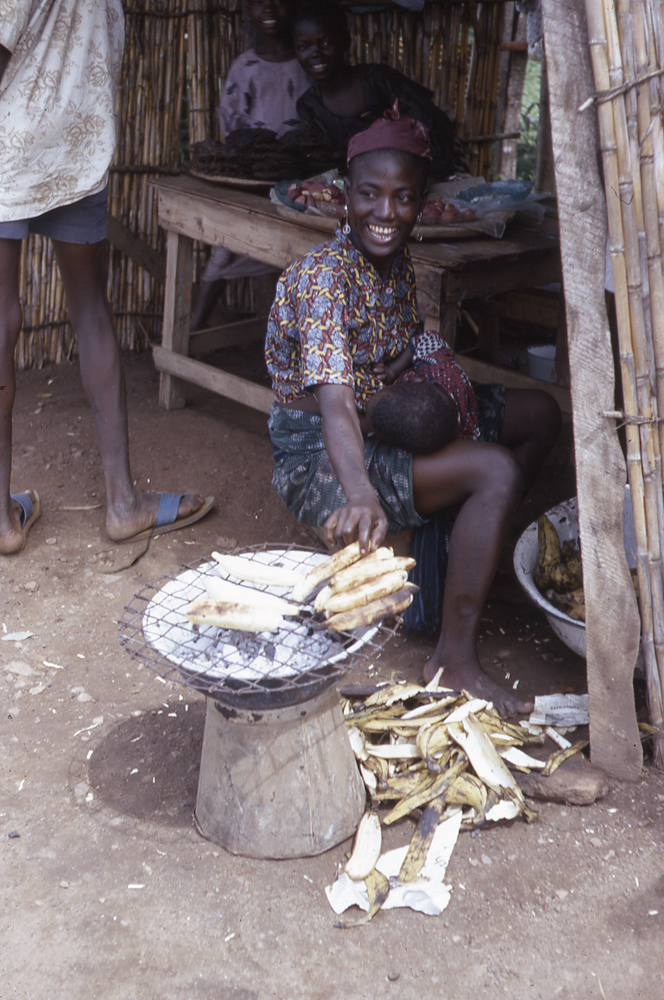
Community Commentary by Ashiyanbi, Akeem Abiodun within research project: 'Rethinking Relationships and Building Trust around African Collections' 2021
The plantain is a versatile fruit. Fried boiled or roasted, this tropical fruit retains its deliciousness in all of its many forms. In Yoruba language the roasted plantain is called bòòlì. It is simply made by placing plantains on a grill atop charcoal fire, turning it constantly until it starts browning. The constant turning of each plantain is to ensure that it roasts evenly. Bòòlì is a popular roadside snack in Nigeria and it is commonly eaten with ground nuts (epa), palm oil or groundnut oil. Wherever you see bòòlì, you will almost always see someone selling epa. It is not uncommon to find bòòlì sellers by the side of major roads in Lagos, Ibadan and other southwestern towns and cities in Nigeria. In Ibadan it is a common feature in Agbowo, Mokola or Dugbe to see corporately dressed white collar employees haggling with the bòòlì sellers. Bòòlì is such a delicious snack and it is advisable to have enough drinking water at hand as it is quite filling. The stuff is abundant and readily sold on major street corners around lunch time, catering to the everyday workers’ hunger pangs.



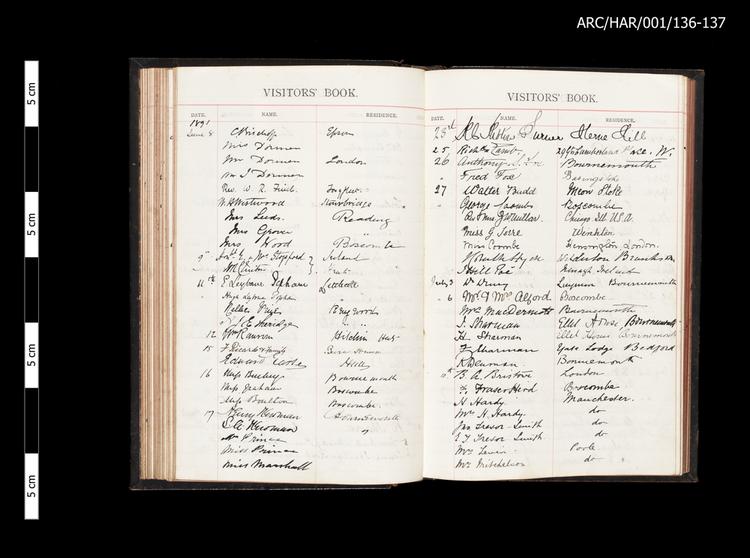
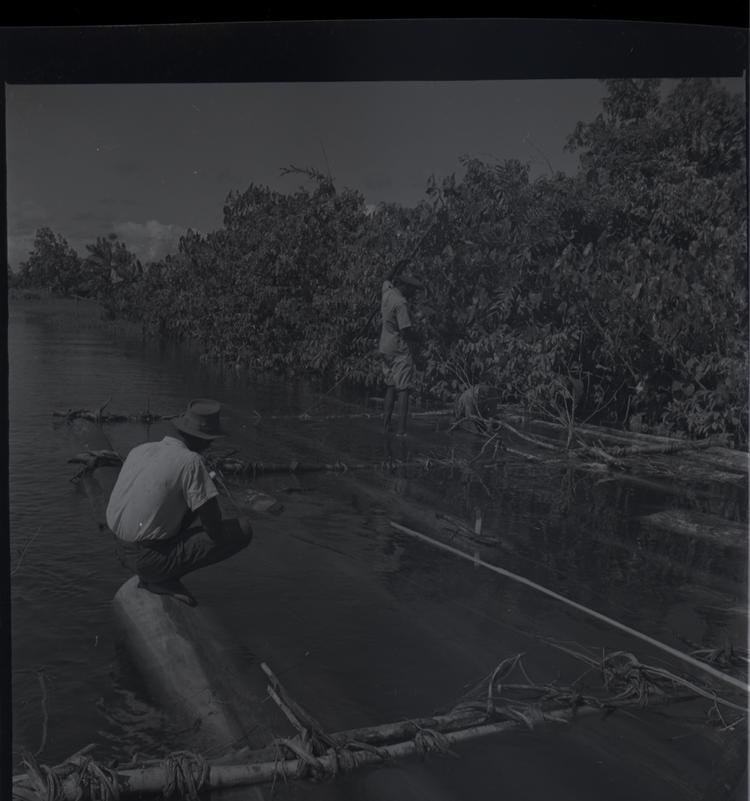
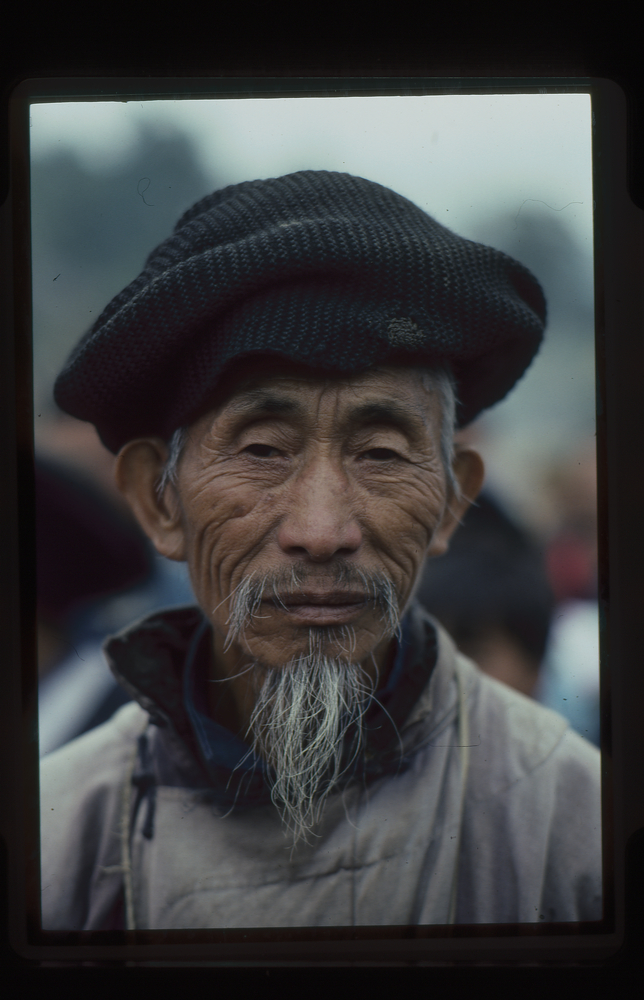
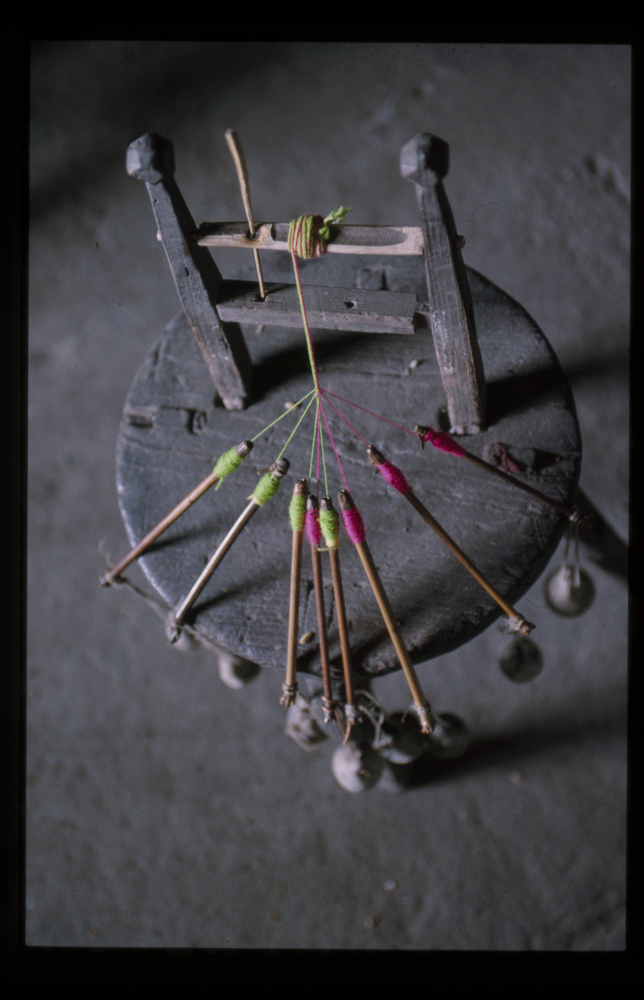










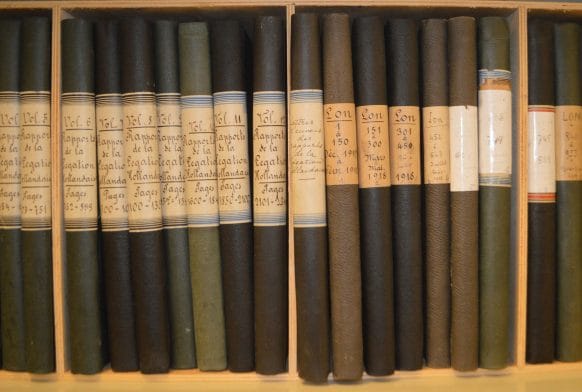





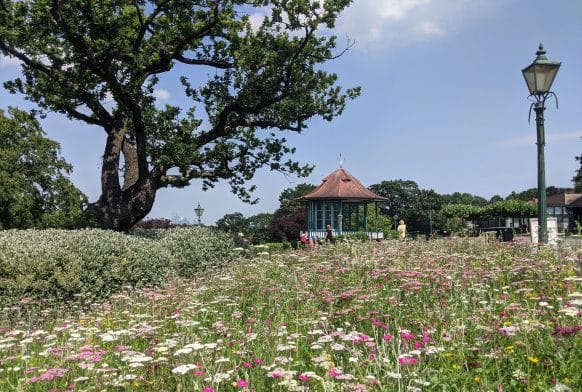

































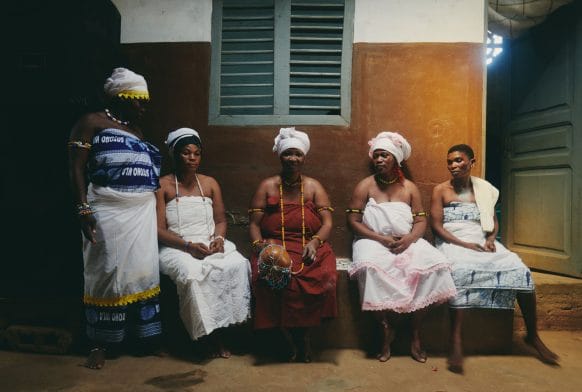






























































































































































































































































































































































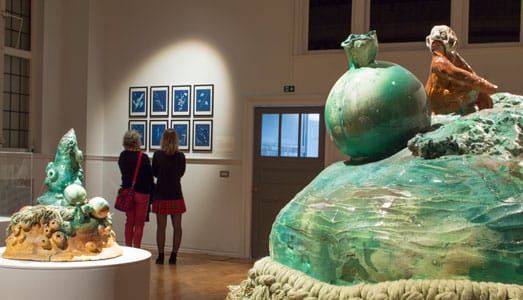





































































































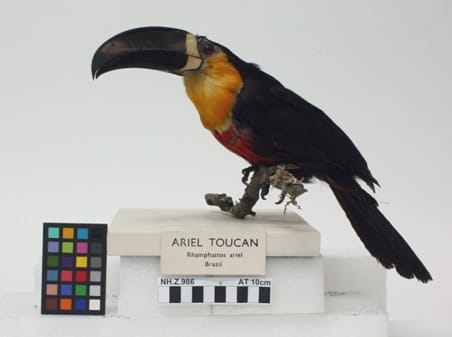




Community Commentary